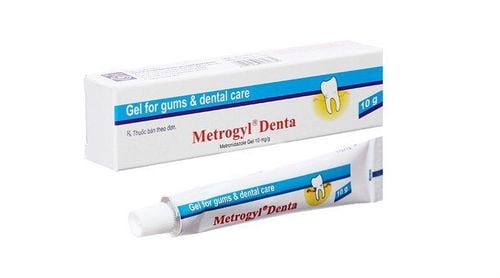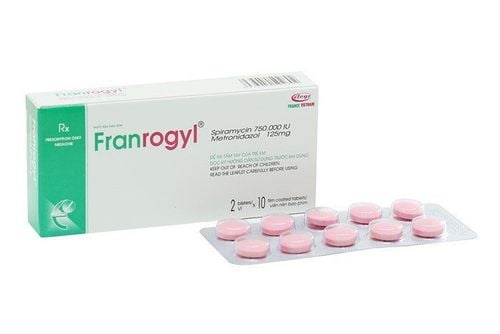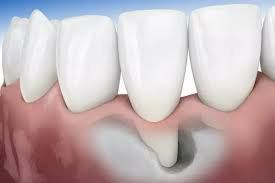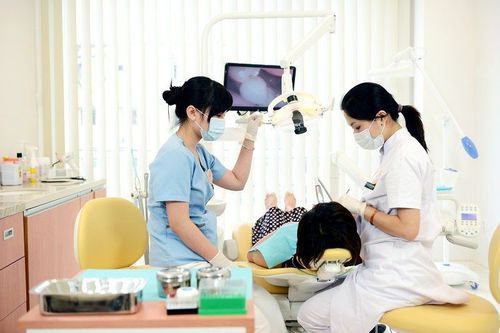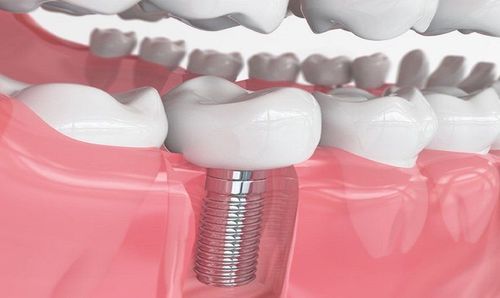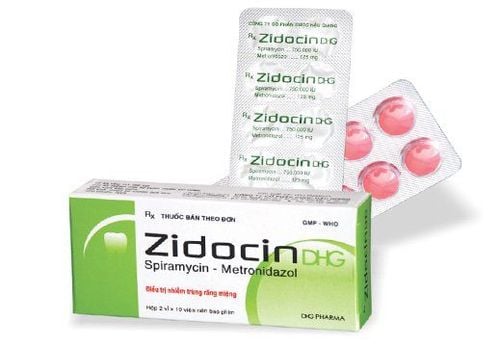This is an automatically translated article.
The article was professionally consulted with Specialist Doctor II Nguyen Khanh Nam - Doctor of Dental - Jaw - Facial - Department of General Surgery - Vinmec Nha Trang International General Hospital.Each tooth, regardless of position, has the effect of supporting the remaining teeth, helping to bite, tear, chew, grind food and balance facial structure. Many people who have lost teeth are always concerned that if they lose their teeth, can they have braces? The answer is yes, if missing teeth are not treated properly.
1. Structure of the set of teeth
An adult has a total of 32 standard teeth, divided equally between the upper and lower jaws (each jaw is 16 teeth). The teeth in each jaw are divided into 4 main groups: incisors, canines, premolars and molars.
The incisors group has 8 teeth (called teeth number 1 and 2), including 4 upper molars and 4 lower molars, whose function is to bite and tear food into small pieces. The group of canines has 4 teeth (tooth number 3), each upper and lower teeth have 2, with the main role of clamping and tearing food. The premolar group has 8 teeth (teeth 4 and 5), including 4 upper molars and 4 lower molars, used to tear and crush food. The group of molars (molars) has 12 teeth (tooth number 6, 7 and 8, tooth number 8 is also known as wisdom tooth), including 6 upper molars and 6 lower molars. The molars have the main function of chewing and grinding food before it enters the stomach.
2. Causes of tooth loss
There are many different causes of molar loss, including:
Lazy brushing, improper oral hygiene or not flossing every day in the long run will cause tooth decay, gingivitis and loss of teeth. tooth. A diet lacking in nutrients for teeth, especially calcium, is the leading cause of weak teeth. In addition, eating a lot of foods containing sugar, acids and carbohydrates also damages tooth enamel and gums, leading to tooth loss. Bad habits such as grinding teeth for a long time will cause tooth wear and adversely affect the tooth structure. Smoking is also a cause of worsening gingivitis, which can easily lead to tooth loss. Injuries caused by accidents or injuries while playing sports such as martial arts, soccer, basketball,... are very easy to impact on the jawbone and teeth, causing broken teeth or broken teeth if the protective gear is not worn. jaw. All activities of teeth such as biting, chewing and grinding food for a long time will wear down the enamel layer and the edges of the teeth, leading to aging. The aging of teeth is more severe in the elderly, making teeth no longer strong and causing tooth loss. The changing hormone levels that occur during puberty and pregnancy can cause enamel wear and root weakness, making teeth loose and prone to falling out. Without regular dental check-ups, it is not possible to detect and timely treat dental diseases, as well as not scraping tartar, which is one of the causes of tooth loss. Medical conditions such as diabetes, arthritis or bite cancer ... make teeth weaker and easier to fall out than the average person.
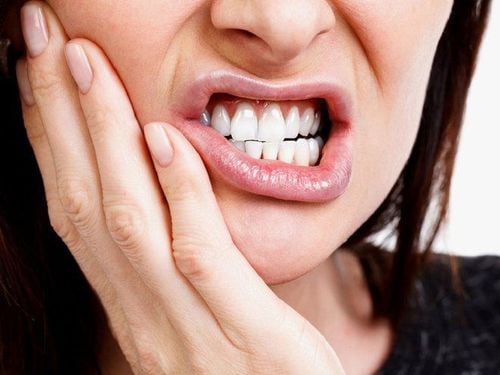
3. Consequences of tooth loss
Each tooth, regardless of position, has the effect of supporting the remaining teeth, helping to bite, tear, chew, grind food and balance facial structure. If a tooth is lost, whether it is the loss of incisors, canines or the loss of upper molars, there will be many serious consequences, especially when the molars are lost for a long time without treatment.
3.1 Makes it difficult to chew and crush food The structure of each person's teeth is inherently stable, so if even one is missing, it will make eating and drinking very inconvenient.
Loss of teeth makes eating very difficult, weak bite, chewing and crushing force will prevent food from being crushed thoroughly before entering the digestive system. This has a negative effect on the stomach and intestines. Losing teeth causes food to fall into the gap, resulting in the need to always adjust food to get into the place where teeth are not lost. Losing teeth, especially when losing molars for a long time, will create a large gap on the jaw, making the adjacent teeth at risk of shifting, leaning, even affecting the entire chewing system. 3.2 Affecting pronunciation Losing teeth, whether incisors or molars, also makes pronunciation less accurate and rounder, affecting communication as well as daily work.
3.3 Adverse effect on aesthetics Losing front teeth and canines greatly affects aesthetics and smiles. Losing molars, although not as aesthetically pleasing as incisors, causes the jaw arch to be unbalanced, the cheeks are sunken in, the facial skin on the side of the missing teeth is sagging, and the skin around the mouth also appears many wrinkles, making the face looks much older than her real age. Over time, if untreated, long-term molar loss can make the face deviate, severely affecting aesthetics, leading to feelings of shyness and inferiority when communicating.
3.4 Affect the ability to pronounce The gaps at the position of the missing teeth are a favorable environment for harmful bacteria to grow and develop, leading to diseases such as tooth decay, periodontitis, gingivitis, inflammation of the roots and also harm the remaining teeth.
3.5 Causing dangerous complications such as temporomandibular joint pain, bone loss When missing teeth, if not restored soon, it can lead to gum recession and jaw bone loss. Losing teeth makes the surrounding teeth no longer support, thereby causing great pressure on the jaw, causing jaw muscle pain, temporomandibular joint pain, headache, neck pain. The teeth on the side tend to move into the space of the missing tooth, the teeth on the opposite side will also recede or protrude excessively. In the long run, if left untreated, it can cause bite problems. Mild cases can lead to malocclusion, while severe cases can lead to paralysis of both jaw muscles and facial dislocation.
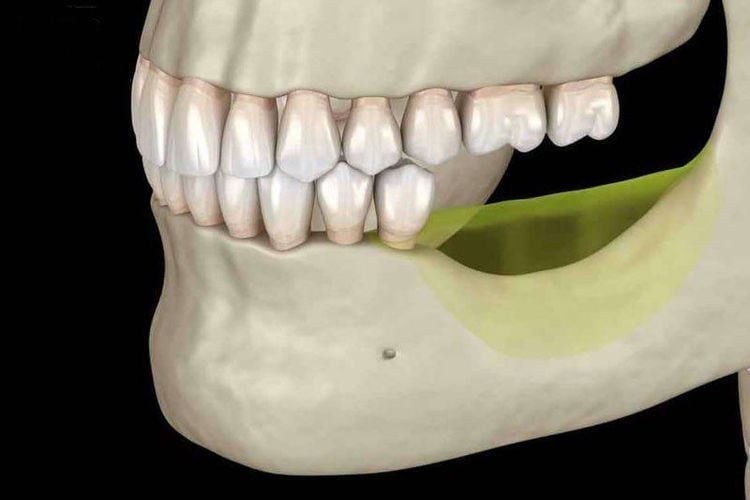
4. Can I get braces if I lose my teeth?
Many people who have lost their teeth are still concerned about whether they can get braces if they lose their teeth or if they lose their front teeth, can they get braces? The answer is it can still be braces. Today, with advances and modern technology in the field of dentistry, worries about losing front teeth, upper teeth or long-term molars will no longer be. Even missing teeth can create a favorable opportunity for the teeth to move into the desired beautiful position, helping to shorten the time and achieve the effect of braces.
People who have lost teeth can apply 1 of the following 2 methods to braces:
Braces with brackets, which means using brackets to pull teeth together. At that time, the dentist will attach the bracket system directly to the surface of the teeth and can use some additional appliances such as braces or minivis if needed. The jaw shaping appliance will fill in the empty space where the missing teeth are, helping the teeth not to be displaced towards the gap during the braces process. However, if the loss of teeth creates too large a gap, accompanied by chipped, protruding or misaligned teeth, the purpose of braces is to maintain an adequate space for the process of tooth restoration. Once braces have stabilized the teeth, it is possible to proceed with dentures to replace the missing teeth. The process of attaching brackets to braces only takes a few hours and will not cause pain if the dentist has high expertise and good skills. Braces without braces (transparent braces). Braces by wearing transparent aligners is very simple because the previous aligners have been made exactly like the patient's teeth. Both the method of braces using brackets or using braces are based on the principle of creating a force to pull the teeth together. However, in situations where it is not possible to pull the teeth together, a dental implant or a porcelain bridge must be made to replace the missing tooth, combined with braces. Methods of restoring teeth after braces will help restore the structure and function of the teeth to the original.
Vinmec International General Hospital has applied a new generation of orthodontic braces to dental treatment to meet the increasing aesthetic needs of customers. When using the service package, customers will receive comprehensive oral care such as general dental examination, panoramic dental films, orthodontics using self-ligating metal brackets and tartar removal,... In addition, customers also receive 2 dental cleanings during the braces process, and a free retainer after half a year of braces to ensure the results of braces.
Please dial HOTLINE for more information or register for an appointment HERE. Download MyVinmec app to make appointments faster and to manage your bookings easily.





